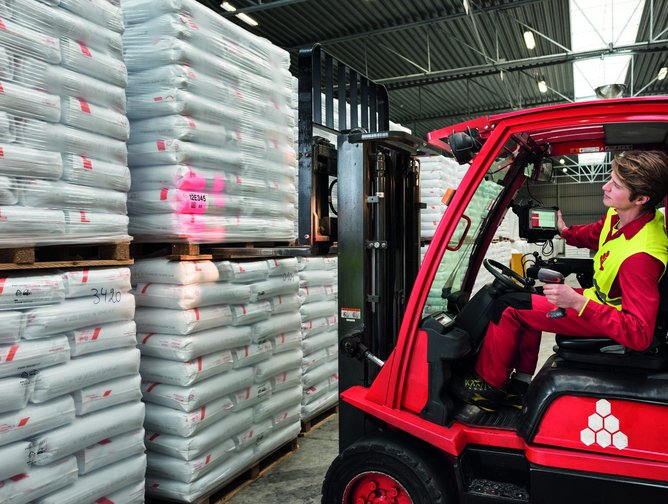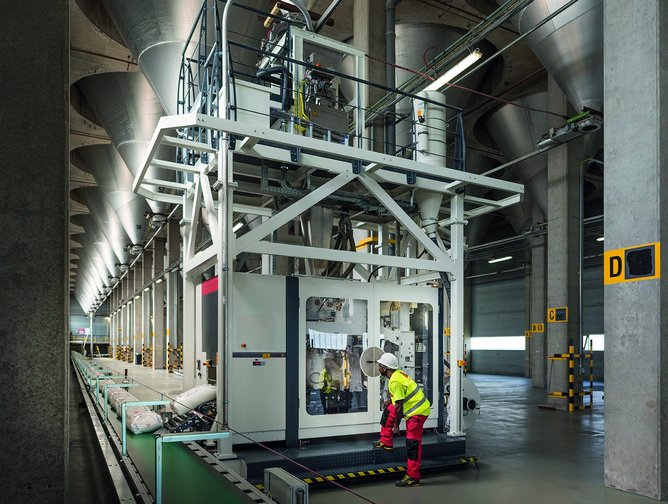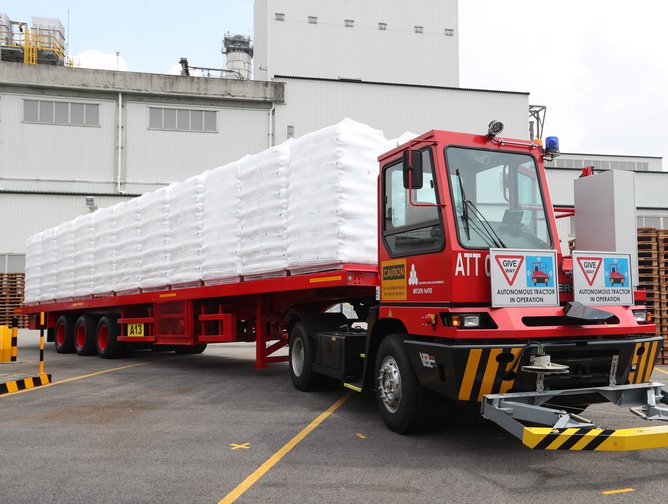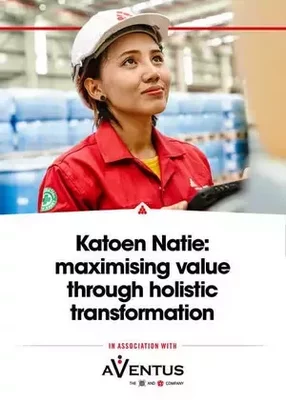Katoen Natie Thailand: digital and operational transformation to drive value for the customer
Katoen Natie, one of the world’s largest international logistics service providers, is resolutely ‘people first’ across its global operations. In Thailand, a hub for the company’s Asian presence, the focus on both employees and customers runs through the core of the firm’s reputation for maximising the value of its services. For Anton Colpaert, President and CEO at Katoen Natie Thailand, the push towards Industry 4.0 is a continuation of the company’s longstanding track record of innovation in the market. “If you look at how we changed the logistical approach in the petrochemical and chemical industry, you can see that we have already been bringing innovation for 25 years,” he explains. “We want to make sure that our customers continue to see that we value that continued effort within our company, and that we certainly want to stay ahead in that number one position.” Colpaert adds that digital transformation offers an opportunity to push the boundaries of Katoen Natie’s customer-centric ethos. “Digital transformation is certainly very important, but we are actually focusing on transformation as a whole. We’re adopting radical changes to try and reorient the organisation in a new direction and take it to a new level of effectiveness,” he says. This broad, holistic approach to transformation is ultimately grounded in the efficacy of its internal culture and change management.
True to its motto, ‘our people make the difference’, Katoen Natie Thailand’s transformation takes its employees into account at every level. “The strategy has been, from an early stage, to avoid having a heavy corporate structure. We’re very decentralised, so if you can attract the right people you can create smaller, flourishing islands of operations where people can go wild with their ideas so long as they’ve proven to be adding to our efficiency, and adding to or creating that maximum value for our customers,” says Colpaert. This attitude, coupled with a pragmatic approach to modifying operations, helps to ensure that new technologies and strategies are applied with care, simultaneously minimising disruption and ensuring that the added value is maximised. “We should not forget the core and basics of what we do,” explains Colpaert. “We try to empower our employees as much as possible, but often using these tools can let them forget the basics of their work.” He stresses that this potential for cutting corners is counterintuitive to the transformation process and purpose: if value added by technology is offset by lost value from employee input, the transformation has failed. “We have to be very vigilant. Even if you train them well, they can start to rely on the system too much in which they think they can take shortcuts. It’s important to make sure that the proof of concept is well thought out and well tested, and that we are able to roll it out quickly. On top of that, we place focus on testing and retesting, and still auditing the system as well.”
An area where great strides have been made from a technological perspective is automation, particularly regarding administrative processes. For a company with clients as diverse as Katoen Natie, automating physical logistics processes throws up big questions about flexibility in terms of accommodating the continuous changes in product types, weights and dimensions. “From a pure automation point of view, that’s a big challenge,” says Colpaert. “It’s a little bit easier if you’re on a production site because you have a very defined and understandable flow.” While these challenges are being addressed through the development of smart, artificial intelligence (AI)-driven solutions, Katoen Natie has elected to take a step-by-step approach to applying automation across its admin flows and shifting to paperless operations. “We’re working on automated reception desks where truck drivers can check themselves in, and we’re pushing to be completely paperless in our warehouse operations,” says Colpaert. “We opened up a new terminal in the Rayong region which is so small-scale that it offers a controlled environment to apply and test these new technologies.” Shifting to paperless operations offers a whole host of benefits that range from greater efficiency to a mitigated environmental impact. Not only will the company be able to significantly cut its paper waste, but the fuel consumption and associated costs of sending and receiving paper documentation are also brought down. Paperless operations also slash the margin of error of paper documentation, improving safety, accuracy and quality.
Colpaert enthuses about Katoen Natie’s wider sustainability strategy, particularly in terms of the progress made with its solar panel initiative and its role in the Operation Clean Sweep programme. Thai legislation currently limits the extent of the project as surplus electricity cannot be offloaded to the national grid, but Katoen Natie is nonetheless actively pursuing a furthering of its recent 1MW installation of solar panels and thereby generating more electricity than it uses. “In Thailand we have more than 450,000 sq m of roof surface, and at the moment we have only installed panels on around 10,000 sq m,” says Colpaert. “We are certainly open to further investment. Once legislation changes, we should be able to put our solar-generated electricity onto the grid.” With regards to Operation Clean Sweep, an international effort to curb the amount of plastics entering the oceans, the firm has been investing heavily in its infrastructure to mitigate the volume of plastic spills and waste; and subsequent potential effluent this generates. Over the last few years, money has been pumped into redesigning a host of operational equipment, including sweeper trucks, wet cleaning devices, pellet skimmers/screens and more to reduce the amount of plastic spills. Not only that, but Katoen Natie Thailand is also engaged in local initiatives such as beach clean-ups and recycling.
Looking forward, Colpaert says that the firm’s next steps from a technological and transformational perspective are rooted in the needs of the customer. “We do not produce anything; we generate a service for the customer and we can only ensure we are doing that in the best way by opening up and listening to them, understanding their needs and seeing how their – and consequently our – world is evolving,” he says. “It’s essential to keep track of that customer heartbeat and understand them fully.” Katoen Natie is aiming to ramp up its use of Big Data and advanced analytics to leverage customer insights in a more direct and actionable fashion. “At this stage, we are trying to interlink programs across the company so that we can build a complete view of the information itself and maximise the data’s value,” explains Colpaert. Given the extent of Katoen Natie Thailand’s stellar customer centricity and internal culture, it will be very interesting to see how it pushes customer value to even greater heights through such innovations.





